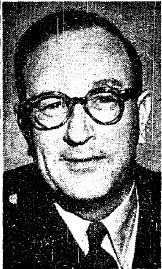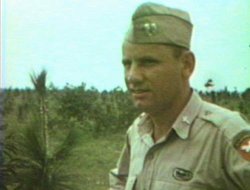A Sermon Preached at St. Margaret of Scotland Anglican Church, Barrie, Ontario, Diocese of Toronto
Sunday, 24 June, 2018
Fifth Sunday After Pentecost
Readings for this Sunday: 1 Samuel 17:32-49, Psalm 9:9-20, 2 Corinthians 6:1-13, Mark 4:35-41
A slender youth stands alone and fragile, armed only with a primitive weapon, while a hulking giant bears down on him. His face is unafraid, and as his sling whirls faster and faster above his head, he squints into the sun to find his mark. The stone flies fast and free, seeking its mark. For a few seconds after the impact the giant stands still, and everyone holds their breath in suspense before he slowly crashes to earth.
It’s a classic underdog story, the shepherd boy who stands against the mighty warrior when grown men have lost their nerve. When I was a boy it was one of the favourite stories in my children’s bible. Like the readers of young adult novels like The Hunger Games, I wanted to be a hero like David and prove myself to the adults.
The story of David and Goliath is a story of courage, but it has its place in the bible because it’s a theological story. In part it is about vocation, about people hearing and responding to God. David the boy shepherd is called by God to be a soldier, just as the Book of Samuel begins with the boy Samuel literally called by God to be a prophet. It is also a story about faithfulness. David, the most unlikely of soldiers, too young to carry the weapons of war, steps forward defeat a terrible enemy. David’s role as a shepherd is certainly somewhere behind the imagery of Jesus, born a descendent of David, as being the Good Shepherd. Finally, David and Goliath is a story about God’s ascendancy over the gods of the other nations. David predicts that when he kills Goliath, “all the earth may know that there is a God in Israel” (1 Sam 17:46). One of the goals of the Book of Samuel is to show the power of God, even against ferocious enemies like the Philistines.
Of course, even though the story of David and Goliath has a theological point, it might legitimately give us pause for thought. We could certainly have a discussion, even a debate, about how old children have to be for the story of David and Goliath. We could ask the same of other Old Testament stories, like that of another hero, Samson, who killed thousands of Philistines with the jawbone of an ass (Judges 15:6). Should we expose young children to stories of war and violence, even when they are in the Bible? Even when the stories are about heroic underdogs? Even the Revised Common Lectionary, which cut out some of the details such as David cutting off Goliath’s head, has qualms about the story.
The world we live in also gives us concerns about how we read and hear stories like David and Goliath. We are uneasy with religious justifications for war and violence, whether in Afghanistan or the Middle East. The wars of Israel in the Old Testament, and the idea that God could favour one people over another, make many Anglicans uneasy, and lead some parishes to keep the Old Testament readings out of their Sunday worship. Also, the idea of David stepping into a soldier’s role may give some cause for concern, given that public figures such as Romeo Dallaire have championed the children who are often pressed into service in various wars. Patricia de Boer and her colleague Benson from Africa Arise have visited us several times, and some of you may remember Benson’s talk about being a child soldier.
So the David and Goliath story has lots of reasons to give us pause because of its violent nature, its theology of war and violence, and its connections with stories in the news today. What are we to make of it, and all the stories like it in the Old Testament?
I’ve been thinking a lot about these issues as a soldier and as a priest lately. For the last two weeks, I’ve been teaching a group of chaplains at the Canadian Forces Chaplain School at Camp Borden. Among the subjects we discussed was how Judaism, Christianity and Islam all deal with violence. All three faiths call themselves religions of peace, even though they all have stories of war and violence in their sacred writings: Torah, Bible and Koran. At various times in their histories, all three religions have claimed that their followers can kill in the name of God.
A friend of mine, who served as a young officer in Afghanistan, once old me that he appreciated chaplains, but before going out on missions, he wanted more than a prayer for peace and safety. “How come you padres never prayed for a good smiting? I would have liked a prayer for God to smite our enemies before I went out on a mission”. My friend grew thoughtful, paused, and said, “I guess the padres knew that there was probably a guy on the other side of the hill with the Taliban, praying that God would smite us. I guess that’s the problem with smiting”. My friend understood the problem. Once we ask God to bless our violence, then where does it end?
Thanks be to God that most believers today, whatever their faith, feel that it is better to talk to one another than to kill one another. The Anglican Church of Canada is a serious participant in interfaith dialogue here in Canada and as part of the Communion throughout the world. Here in Canada we have created a country where different faiths and races can live peacefully together. Our Armed Forces have Muslim and Jewish chaplains serving our military personnel, and we may soon have the first Hindu or Sikh chaplain join us. So yes, much has changed for the better, which gives us a better perspective from which to read stories like David and Goliath.
We have our perspective, but its also helpful to be aware of the perspective and context of the Old Testament, which is for us, as Christians, part of our family story. The perspective of the Book of Samuel is not as bloodthirsty and violent as we might think, because the Book of Samuel in many ways is a tragedy. Samuel the faithful prophet does not want Israel to have kings, but the people wanted “a king to govern us, like other nations” (1 Sam 8:5). Saul becomes king, a flawed man who becomes jealous of David’s fame and success after Goliath. David becomes king, a great king, but he too is flawed and tragic, and the kings who follow after ultimately bring Israel to ruin. Only the Messiah who comes from the lineage of David can truly save Israel, and can truly save us.
If we reject the Old Testament, we reject the story of how God wants to save us. It’s no always a pretty story, but that’s why we need to be saved, frankly. It’s also our family story, as the people of God. Think of the story like one of those black and white photos of an impossibly young person in an old uniform, a father or grandfather who went off to one of the world wars. Those pictures honour the ancestor and his or her service, without glorifying the war. Maybe that’s a helpful way to think of this story.
The story of David and Goliath can be read, and even told to children in a appropriate manner, as a story of heroism and faith, but it is not a justification to violence. David is a hero in a dark time, and a reminder that, as is so often the case in the Bible, God chooses unlikely people to do good things. Goodness knows we need heroes, which is why we have saints. Today there are other kinds of heroes that we can celebrate with our children - I mentioned Canada’s Romeo Dallaire and his work to rescue and rehabilitate child soldiers. I am sure we can think of many other examples.
Most of all, it’s our hope, and our prayer, that our God calls us to work for a world where no one, and particularly no child, should ever have to do as David did, and pick up a weapon in God’s name.



